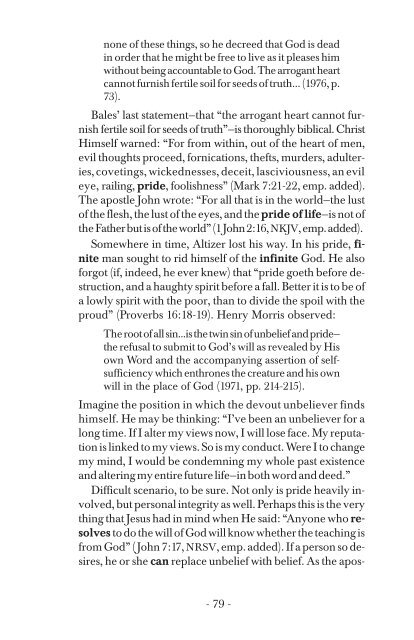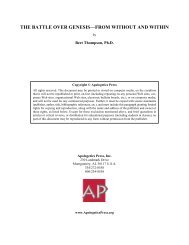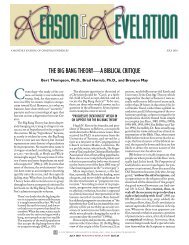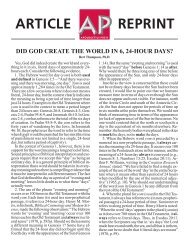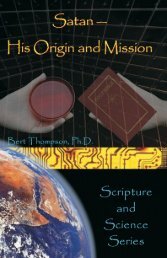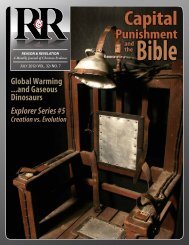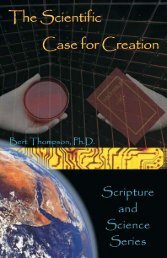The Many Faces, and Causes, of Unbelief - Apologetics Press
The Many Faces, and Causes, of Unbelief - Apologetics Press
The Many Faces, and Causes, of Unbelief - Apologetics Press
You also want an ePaper? Increase the reach of your titles
YUMPU automatically turns print PDFs into web optimized ePapers that Google loves.
none <strong>of</strong> these things, so he decreed that God is dead<br />
in order that he might be free to live as it pleases him<br />
without being accountable to God. <strong>The</strong> arrogant heart<br />
cannot furnish fertile soil for seeds <strong>of</strong> truth... (1976, p.<br />
73).<br />
Bales’ last statement—that “the arrogant heart cannot furnish<br />
fertile soil for seeds <strong>of</strong> truth”—is thoroughly biblical. Christ<br />
Himself warned: “For from within, out <strong>of</strong> the heart <strong>of</strong> men,<br />
evil thoughts proceed, fornications, thefts, murders, adulteries,<br />
covetings, wickednesses, deceit, lasciviousness, an evil<br />
eye, railing, pride, foolishness” (Mark 7:21-22, emp. added).<br />
<strong>The</strong> apostle John wrote: “For all that is in the world—the lust<br />
<strong>of</strong> the flesh, the lust <strong>of</strong> the eyes, <strong>and</strong> the pride <strong>of</strong> life—is not <strong>of</strong><br />
the Father but is <strong>of</strong> the world” (1 John 2:16, NKJV, emp. added).<br />
Somewhere in time, Altizer lost his way. In his pride, finite<br />
man sought to rid himself <strong>of</strong> the infinite God. He also<br />
forgot (if, indeed, he ever knew) that “pride goeth before destruction,<br />
<strong>and</strong> a haughty spirit before a fall. Better it is to be <strong>of</strong><br />
a lowly spirit with the poor, than to divide the spoil with the<br />
proud” (Proverbs 16:18-19). Henry Morris observed:<br />
<strong>The</strong> root <strong>of</strong> all sin...is the twin sin <strong>of</strong> unbelief <strong>and</strong> pride—<br />
the refusal to submit to God’s will as revealed by His<br />
own Word <strong>and</strong> the accompanying assertion <strong>of</strong> selfsufficiency<br />
which enthrones the creature <strong>and</strong> his own<br />
will in the place <strong>of</strong> God (1971, pp. 214-215).<br />
Imagine the position in which the devout unbeliever finds<br />
himself. He may be thinking: “I’ve been an unbeliever for a<br />
long time. If I alter my views now, I will lose face. My reputation<br />
is linked to my views. So is my conduct. Were I to change<br />
my mind, I would be condemning my whole past existence<br />
<strong>and</strong> altering my entire future life—in both word <strong>and</strong> deed.”<br />
Difficult scenario, to be sure. Not only is pride heavily involved,<br />
but personal integrity as well. Perhaps this is the very<br />
thing that Jesus had in mind when He said: “Anyone who resolves<br />
to do the will <strong>of</strong> God will know whether the teaching is<br />
from God” ( John 7:17, NRSV, emp. added). If a person so desires,<br />
he or she can replace unbelief with belief. As the apos-<br />
-79


